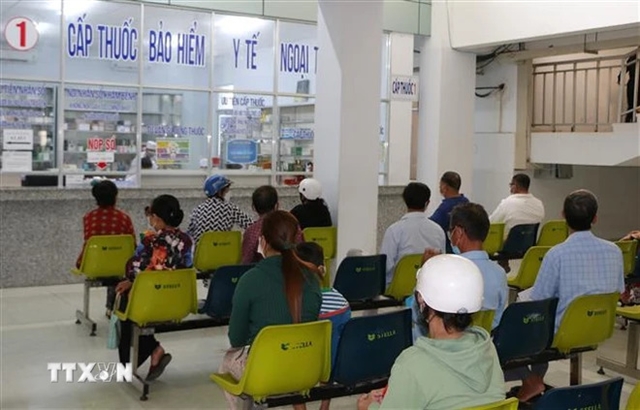 Society
Society

 |
| Patients waiting to receive medication through their health insurance plans at the General Hospital in Bạc Liêu Province. — VNA/VNS Photo |
HÀ NỘI — The Ministry of Health (MoH) has responded to voter concerns regarding the limited availability of cancer treatment drugs covered by health insurance in public hospitals, medications that were once included but are now excluded.
The ministry has pledged to continue its efforts to expand the range of covered treatments and enhance the quality of care for patients.
In its commitment to universal health insurance, MoH has prioritised the development and improvement of policies, particularly those related to drug coverage.
Việt Nam is recognised as one of the few countries with a relatively comprehensive list of medications covered by health insurance, aligned with the premiums paid.
Under a circular issued on December 31, 2022, the ministry provided an updated list of chemical drugs, biological products, radiopharmaceuticals and markers eligible for insurance coverage.
This extensive list includes 1,037 active ingredients, divided into 27 major groups, along with 59 radiopharmaceuticals and markers.
Significantly, the list features 76 active ingredients specifically for cancer treatment and immunomodulatory drugs, underscoring the ministry's commitment to safeguarding the rights of cancer patients.
The list specifies medications by active ingredient rather than by brand name, ensuring flexibility in the selection of drugs covered by the Health Insurance Fund at medical facilities, regardless of treatment indications or specialities.
MoH plans to continue reviewing and amending the circular that governs the list of drugs covered by the Health Insurance Fund.
This ongoing effort aims to broaden treatment options and ensure high-quality care for patients.
Additionally, MoH is working with relevant agencies to establish regulations for the direct reimbursement of drug and medical device costs for insured patients.
This initiative is designed to address potential drug shortages caused by external factors, ensuring that patients' treatment needs and insurance rights are protected.
In a related response to voters in Cần Thơ City, the ministry highlighted that the insurance coverage extends beyond modern pharmaceutical drugs to include traditional medicines and herbal remedies.
A circular issued on March 17, 2015, outlines a list of 229 traditional medicines and herbal drugs, organised into 11 functional groups, and 349 traditional medicinal herbs, divided into 30 groups based on traditional medicine principles.
The current list of drugs covered by the Health Insurance Fund encompasses a wide range of treatments across various medical specialities, both in modern and traditional medicine, meeting patients' needs while aligning with the Fund’s payment capacity.
To further enhance medication availability and quality for insured patients, the ministry will periodically review and expand the list of covered drugs, with a particular focus on the needs of children, the elderly, and the economically disadvantaged, while maintaining the financial balance of the Health Insurance Fund. — VNS




